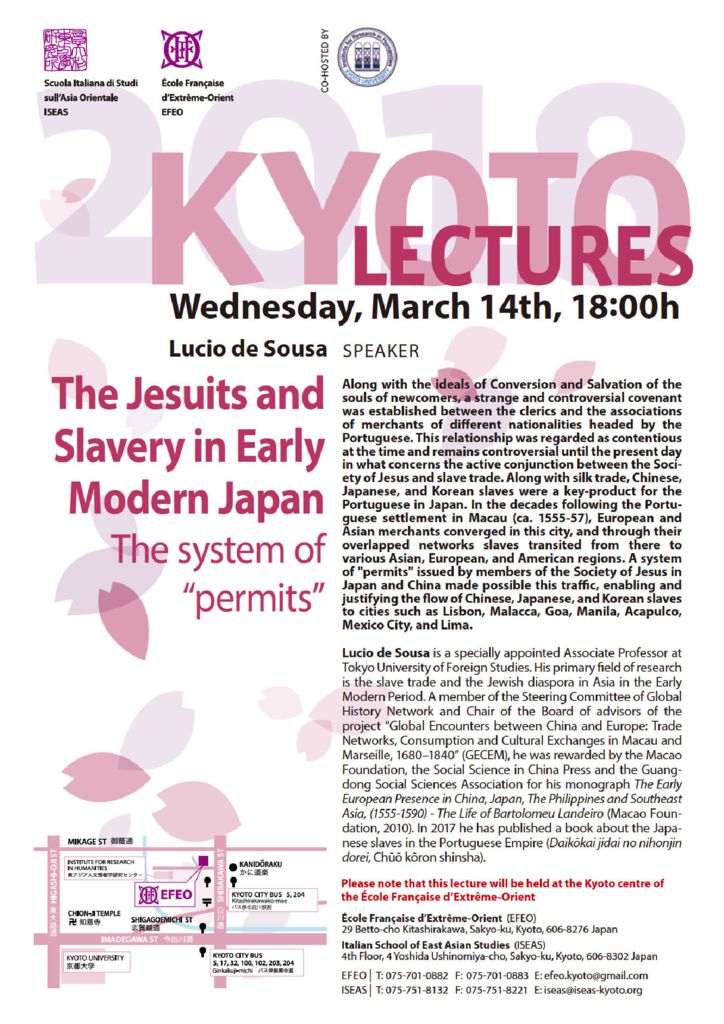Along with the ideals of Conversion and Salvation of the souls of newcomers, a strange and controversial covenant was established between the clerics and the associations of merchants of dierent nationalities headed by the Portuguese. This relationship was regarded as contentious at the time and remains controversial until the present day in what concerns the active conjunction between the Society of Jesus and slave trade. Along with silk trade, Chinese, Japanese, and Korean slaves were a key-product for the Portuguese in Japan. In the decades following the Portuguese settlement in Macau (ca. 1555-57), European and Asian merchants converged in this city, and through their overlapped networks slaves transited from there to various Asian, European, and American regions. A system of “permits” issued by members of the Society of Jesus in Japan and China made possible this trac, enabling and justifying the ow of Chinese, Japanese, and Korean slaves to cities such as Lisbon, Malacca, Goa, Manila, Acapulco, Mexico City, and Lima.
Lucio de Sousa is a specially appointed Associate Professor at Tokyo University of Foreign Studies. His primary eld of research is the slave trade and the Jewish diaspora in Asia in the Early Modern Period. A member of the Steering Committee of Global History Network and Chair of the Board of advisors of the project “Global Encounters between China and Europe: Trade Networks, Consumption and Cultural Exchanges in Macau and Marseille, 1680–1840” (GECEM), he was rewarded by the Macao Foundation, the Social Science in China Press and the Guangdong Social Sciences Association for his monograph The Early European Presence in China, Japan, The Philippines and Southeast Asia, (1555-1590) – The Life of Bartolomeu Landeiro (Macao Foundation, 2010). In 2017 he has published a book about the Japanese slaves in the Portuguese Empire (Daikokai jidai no nihonjin dorei, Chuo koron shinsha).
